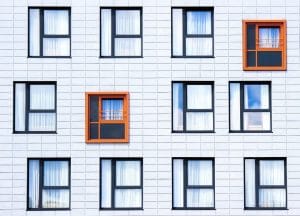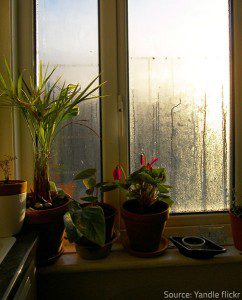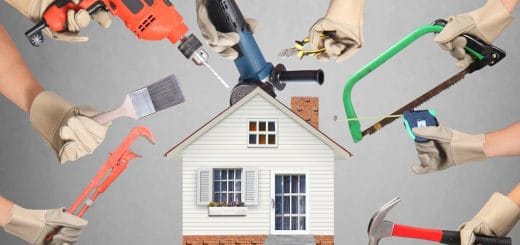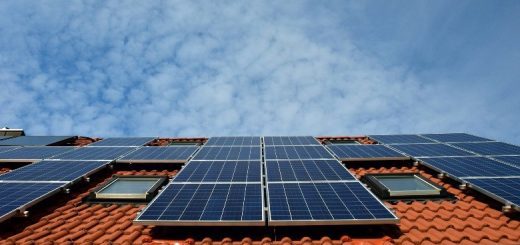Replacing Windows: 3 Considerations
Replacing windows is a staple activity for many home renovation and improvement projects. It can breathe a new sense of life into a living space and can instantly turn an old, grungy room into a fresh and exciting space.
However, replacing a window (vs repair) isn’t quite as simple as it may sound on the surface. There are many factors to consider beyond the simple act of getting the old window out and the new one installed in its place.
Here are three important considerations that should factor into every window replacement project.
The Environmental Impact
The first factor to consider is the environmental impact of your window-related aspirations. This refers to both the larger environment that we all share as well as the personal environment of your home.
This starts with the manufacturing process of the window itself. This is important to keep in mind as you shop for windows, as you will likely be considering many other material-related factors at the same time, such as:
- Selecting materials that are within your budget.
- Considering weather conditions that could impact your windows (more on that further down).
- How much you want to invest in upkeep for the windows.
- The decorative and aesthetic aspects of each window.
- How old your home is and how easy the replacement will be.
 It’s hard to keep track of the environmental impact of your new windows along with all of these pressing concerns. However, when the dust settles and the contractors pack up, it’s precisely the environmental part of the equation that will continue to be a prominent factor far into the future.
It’s hard to keep track of the environmental impact of your new windows along with all of these pressing concerns. However, when the dust settles and the contractors pack up, it’s precisely the environmental part of the equation that will continue to be a prominent factor far into the future.
This is why the quality of the windows really should matter. Roughly a third of the energy used in the residential sector is attributed to heat entering or escaping through windows. A quality-built, energy-efficient window will both reduce your energy consumption and your heating and cooling bills at the same time. It will also create a more controllable and enjoyable indoor environment for your home.
Along with materials, the installation of the window should also be carefully attended to. By investing in a skilled and trained contractor, you can rest assured that your windows were installed properly. There should be no gaps or drafts, and they should be well-insulated within the wall cavity on all sides.
The Safety Implications
Safety is another major factor that’s easy to overlook with windows. While insulationInsulation is a material used in buildings to reduce the tra... More, aesthetics, and sunshine are all common focal points, a window is also an easy access point for anyone who may come snooping around your home. They are also an easy target for things like hurricanes, tornadoes, and other natural disasters.
This need for safe apertures in a home is imperative in many situations, which is why the first thing you should do when considering window safety is assess what dangers you’re guarding against. For instance, if you live in rural Upstate New York, the biggest window-related dangers you’re likely to face are snow and rain.
However, if you reside in areas like Florida, California, or Texas, you may face serious safety concerns. Natural disasters like hurricanes, earthquakes, and tornadoes, respectively, can threaten your windows’ integrity.
 You can counter these dangers by purchasing windows with tempered or laminated glass. Some windows are made for specific conditions. For instance, hurricane-rated windows are made of many sheets of laminated glass, which helps them stay intact and prevents shattering. If you’re seriously concerned about your home’s safety due to weather-related disasters, always factor that into your window purchases.
You can counter these dangers by purchasing windows with tempered or laminated glass. Some windows are made for specific conditions. For instance, hurricane-rated windows are made of many sheets of laminated glass, which helps them stay intact and prevents shattering. If you’re seriously concerned about your home’s safety due to weather-related disasters, always factor that into your window purchases.
Additionally, if you live in an area that has high crime rates, you may want an added level of security from a human perspective. Bullet-resistant windows may sound scary, but they can help with more than just the one-off chance of stopping a bullet. They are designed to resist any projectiles — at least for a while.
Bullet-resistant windows are similar to hurricane-rated panes in the way that they’re constructed, but the layers are often thicker. At times, they are even made from solid, poured acrylic or fused panels of flexible polycarbonate. In either case, they are essentially unbreakable.
There are multiple ways to protect your windows (and your home, by extension) against various threats, whether those are natural or manmade. Even so, it’s still important to remember to take additional steps to secure your home beyond the make of the windows themselves. Floodlights, window locks, window sensors, security cameras, and even a well-placed pricker bush or thick shrubbery can lend additional protection to your home’s windows, as well.
Soundproofing Requirements
Finally, one of the easiest factors to completely ignore is the actual soundproofing of your windows. Windows are typically associated with the visual elements of a home. Not only do they look appealing, but they allow light into the structureStructure refers to the framework or components of a buildin... More and easy access to view the outside.
However, a window can also be a source of sound pollutionPollution is the introduction of harmful substances into the... More if you’re not careful. Thin panes and poor installation can allow an excessive amount of noise to seep through, which can be a pain if you’re living with things like:
- A busy suburban neighborhood
- Rural farm equipment
- A bustling urban cityscape
- Loud neighbors
- Nearby pets (especially dogs)
 The list can go on and on. There are many reasons that you’ll want to have soundproofed windows — and it’s a fact that you want to consider before you choose to replace your existing windows and not afterward.
The list can go on and on. There are many reasons that you’ll want to have soundproofed windows — and it’s a fact that you want to consider before you choose to replace your existing windows and not afterward.
There are many ways to soundproof a window. Some of them are related to the replacement process itself. For instance, you can add window inserts to thicken the amount of material between yourself and the outside. You can also ensure that the model of window you choose is a double-pane rather than a single-pane window. (This is better for the environmental aspect of the window, as well.)
During the installation, make sure that you or your contractor also pay extra attention to things like insulationInsulation is a material used in buildings to reduce the tra... More and caulk so that you seal up every sound-leaking gap. Once the windows are in, you can also add thick curtains or shades to help reduce sound pollutionPollution is the introduction of harmful substances into the... More even further.
Thinking Through Your Window Purchases
Many factors go into replacing windows. Some are easier to overlook than others. It’s wise to give environmental concerns, security, and soundproofing some serious thought before you commit to a plan.
Factors like these can impact both the kind of window you choose and who you have install them. They also can help you ensure that you’re making the best possible investment in your home, both now and for the long term.












